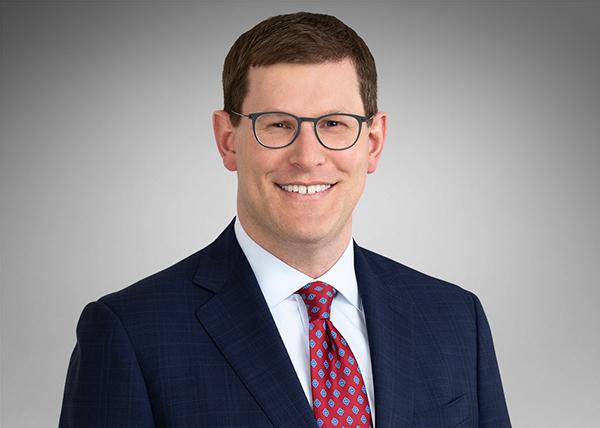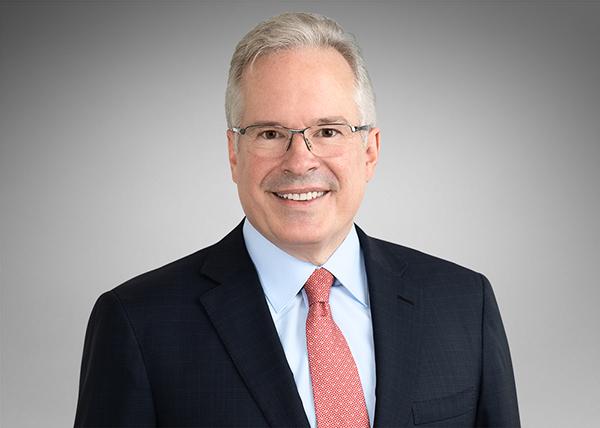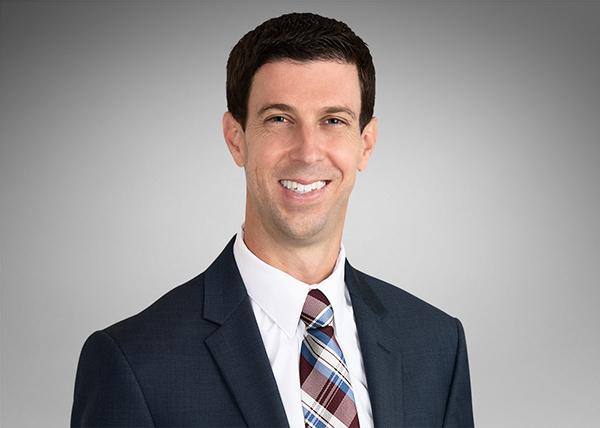Summary
What You Need to Know:
Last week, the Department of Justice announced various policy changes designed to undo certain Trump-era enforcement policies and provide prosecutors with expanded tools to demand cooperation, investigate misconduct, and punish corporate and individual offenders.
- The Department is cracking down on corporate repeat offenders and will now more aggressively police compliance with existing NPAs or DPAs and consider a much wider range of past misconduct in making charging decisions.
- The Department will again actively consider monitorships in appropriate cases, removing any Trump-era default presumption against corporate monitors.
- More policy changes may be coming, as the Department has formed a Corporate Crime Advisory Group with a broad mandate to develop recommendations and propose revisions to the Department’s policies on corporate criminal enforcement.
- SEC Chair Gary Gensler indicated that he viewed DOJ’s policy changes as consistent with his view about how to handle corporate offenders.
DOJ’s Policy Revisions Enhance Cooperation Expectations and Crack Down on Repeat Offenders and Individuals
Last Thursday, Deputy Attorney General Lisa Monaco announced a series of policy changes designed to enhance corporate cooperation expectations, punish repeat corporate misconduct, pursue individual wrongdoers, and restore the general Obama-era orientation toward compliance monitorships. Taken together, these moves appear to reflect DOJ’s view that companies have not been cooperating sufficiently in the Department’s efforts to pursue individual wrongdoers, nor have companies adequately learned lessons from prior misconduct.
These changes, some of which dial back earlier policy revisions made under the Trump Administration, come just weeks after another senior DOJ official promised to “redouble” DOJ’s commitment to white collar enforcement, pointing to a “crisis of confidence when it comes to the ability of the government to effectively monitor corporations and trust in corporations.” Along with a promised “surge” in resources for corporate enforcement, the Department is sending a clear message that white collar enforcement will be a top priority in the years ahead, and that any perceived softness in enforcement will not last. Indeed, these policy changes sharpen the tools available to DOJ at every stage of the enforcement process—from requiring additional corporate cooperation during the investigation phase, to expanding prosecutorial authority at the charging stage, to increasing the government’s leverage at the time of resolution. Companies, particularly those in highly regulated industries or with a history of regulatory enforcement actions, would be well-advised to take proactive steps to double down on their compliance efforts. Those undergoing government investigations should prepare to address the Department’s expanded expectations in the areas announced.
Looking ahead, Deputy Attorney General Monaco announced that these were only the first steps DOJ will be taking to combat corporate crime, and we can expect additional policy announcements in the months and years to come.
We summarize below the key changes that were announced last week.
1. Restoring an Obama Administration Policy to Emphasize Enforcement Against Individuals
Released in 2015, the Yates Memorandum announced six policy changes designed to enable DOJ to more effectively pursue enforcement against individuals “who perpetrate corporate wrongdoing,” which we covered in a previous alert. In late 2018, during the Trump Administration, DOJ pared back one of these changes, namely the requirement that corporations disclose information about all employees involved in misconduct in order receive cooperation credit. Instead, under the Trump Administration revision, companies were required to identify only individuals who were “substantially involved in or responsible for the criminal conduct,” in a nod to “the real world of limited investigative resources.” The Deputy Attorney General’s announcement reinstates the original language in the Yates Memorandum.
This change reverts to the oft-stated refrain under the Obama Administration that individuals “who perpetrate corporate wrongdoing” would be held accountable for their actions. Deputy Attorney General Monaco stated, “it is unambiguously this department’s first priority in corporate criminal matters to prosecute the individuals who commit and profit from corporate malfeasance.” It remains to be seen whether this stated renewed vigor will materially change the Department’s approach in that area. Of perhaps greater immediate significance, the change will have the effect of demanding enhanced cooperation from companies during government investigations, making them responsible for identifying a wider scope of employees than before. This may place more of a burden on companies during government investigations, and could potentially slow the pace to reaching a resolution. In practice, we expect that the reach of this requirement will continue to be subject to discussions between prosecutors and company counsel, but DOJ now has a stronger, policy-based hand to play in these discussions.
2. Allowing Prosecutors to Consider a Wider Array of Past Misconduct in Reaching Charging Decisions
DOJ’s Principles of Federal Prosecution of Business Organizations (commonly known as the “Filip factors”) require prosecutors to consider 11 factors in deciding whether to pursue criminal charges against corporate defendants. Among other factors, prosecutors must assess whether a company has engaged in past misconduct in order to determine whether to bring charges and how best to resolve cases. Previously, however, the policy provided that prosecutors would consider a corporation’s prior misconduct only if it was “similar” to the conduct being evaluated. For instance, in the past, when considering how to resolve a Foreign Corrupt Practices Act (FCPA) investigation, prosecutors would consider only prior foreign bribery misconduct.
Under the revised policy, in addition to more aggressive policing of compliance with existing non-prosecution agreements (NPAs) or deferred prosecution agreements (DPAs) for those companies who have previously settled enforcement actions with the Department, prosecutors are now instructed to consider all of a corporation’s prior misconduct, even if unrelated to the present matter and even for companies who have never been in the Department's crosshairs. In other words, prosecutors will now consider unrelated prior misconduct that was the subject of a criminal, civil, or regulatory enforcement action by a federal, state, or even overseas regulator. The expansive definition of “misconduct” in the current Justice Manual—which sweeps to, for example, warning letters—may further broaden the reach of this policy shift if that language is retained in its current form.
Perhaps adding to the uncertainty, the Deputy Attorney General’s office circulated internal guidance to DOJ attorneys following her speech suggesting that misconduct “discovered” during prior enforcement actions could inform this determination. This language raises a question as to whether uncharged conduct (in the background of a prior enforcement action or merely an investigation) can be considered by the Department in making charging decisions.
Although the Deputy Attorney General acknowledged in her speech that some prior misconduct may be less significant than other misconduct, the revision to this Filip factor means that repeat corporate offenders under DOJ scrutiny are exposed to a heightened risk of criminal charges or less favorable resolutions. Accordingly, as a practical matter, when facing criminal charges, corporations should be prepared to answer tough questions about a wide variety of past misconduct. As the Deputy Attorney General noted in her remarks, a record of past misconduct “speaks directly to a company’s overall commitment to compliance programs and the appropriate culture to disincentivize criminal activity.” More than ever, companies must devote resources to corporate compliance programs, lest they expose themselves to charges that they have not learned from their past mistakes.
Forecasting even more aggressive changes to come, Deputy Attorney General Monaco hinted that consideration of past misconduct under the Filip factors may soon be supplemented by policies that make it more difficult for companies to obtain an NPA or DPA where they have received one previously, even in unrelated areas. This would represent a marked departure from longstanding practice, and companies in highly regulated industries or with a history of past misconduct could face a decidedly different calculus not only when resolving matters, but also when considering how such a change may intersect with considerations about voluntary disclosure. If a DPA or an NPA, for example, were off the table altogether for repeat offenders or at least in the absence of a voluntary disclosure, the decisions for certain companies in how to engage with the Department would become even more complicated than before.
3. Expanding the Availability of Monitorships in Corporate Resolutions
Many considered the 2018 Benczkowski Memorandum to suggest that DOJ wanted monitorships to be the exception, not the rule, in a corporate resolution. In particular, it provided prosecutors with specific factors to consider in determining whether a corporate monitor should be appointed, which focused more than previous guidance on the burdens that monitors can impose on companies. In her remarks, Deputy Attorney General Monaco announced that she is “rescinding” any guidance “suggest[ing] that monitorships are disfavored or are the exception.” Instead, prosecutors are “free to require the imposition of independent monitors whenever it is appropriate to do so in order to satisfy our prosecutors that a company is living up to its compliance and disclosure obligations under the DPA or NPA.”
The internal guidance circulated following Deputy Attorney General Monaco’s speech illustrates the practical applications of the new policy guidelines. For instance, under the new policy, prosecutors are encouraged to consider imposing a monitorship where a corporation’s compliance program and controls are “untested, ineffective, inadequately resourced, or not fully implemented at the time of a resolution.” By contrast, corporations that can demonstrate “tested, effective, adequately resourced, and fully implemented” compliance programs at the time of resolution may be less likely to receive a monitor.
On a broader scale, we expect that this change will increase the government’s leverage to impose a monitor at the time of resolution. Most pointedly, companies will no longer be able to point to the undertones of the Benczkowski Memorandum in pushing back against a monitor, and the Department has sent a clear signal to prosecutors that monitorships are not disfavored. This change in position dovetails with DOJ’s change to the Filip factors described above concerning a company’s prior misconduct—that is, Department leadership appears to be of the view that at least some companies have not learned their lesson from prior enforcement actions. It is natural that the same leadership would lean more heavily on monitorships to help steer companies in that direction. Potentially reflecting this viewpoint, Deputy Attorney General Monaco hinted at future changes that would police companies who have not taken their obligations under an NPA or DPA “seriously enough.” The expanded use of monitors could be one such policing mechanism that stops short of actually charging the company with its prior offenses.
Looking Ahead
While only time will tell how the Biden Administration will implement the new changes, companies should treat these policy changes as a clear signal that the Department intends to ratchet up its focus on corporate misconduct in the years ahead. The Department is forming a Corporate Crime Advisory Group, composed of representatives from across the Department who will evaluate a host of issues in corporate criminal enforcement and propose revisions to the Department’s policies. In the meantime, Deputy Attorney General Monaco did not mince words about how companies should interpret the announced changes, detailing five clear pieces of guidance in last week’s speech:
- "Companies need to actively review their compliance programs to ensure they adequately monitor for and remediate misconduct—or else it’s going to cost them down the line.”
- “For clients facing investigations, as of today, the department will review their whole criminal, civil and regulatory record—not just a sliver of that record.”
- "For clients cooperating with the government, they need to identify all individuals involved in the misconduct—not just those substantially involved—and produce all non-privileged information about those individuals’ involvement.”
- "For clients negotiating resolutions, there is no default presumption against corporate monitors. That decision about a monitor will be made by the facts and circumstances of each case."
- “Looking to the future, this is a start—and not the end—of this administration’s actions to better combat corporate crime.”
As noted above, SEC Chair Gensler indicated that DOJ’s policy changes reflect his view of how corporate offenders should be handled. Gensler did not suggest that any specific policy changes would be forthcoming at the SEC, but it would appear that companies under SEC scrutiny will face similarly tough questions from the agency regarding prior misconduct and compliance program effectiveness at the time of resolution.
The following Covington lawyers assisted in preparing this client update: Steve Fagell, Nancy Kestenbaum, Aaron Lewis, Adam Studner, Josh Roselman, Leah Saris, and Nate Oppenheimer. If you have any questions, please contact them or other members of our White Collar Defense and Investigations Practice Group.
Back
Back



















































